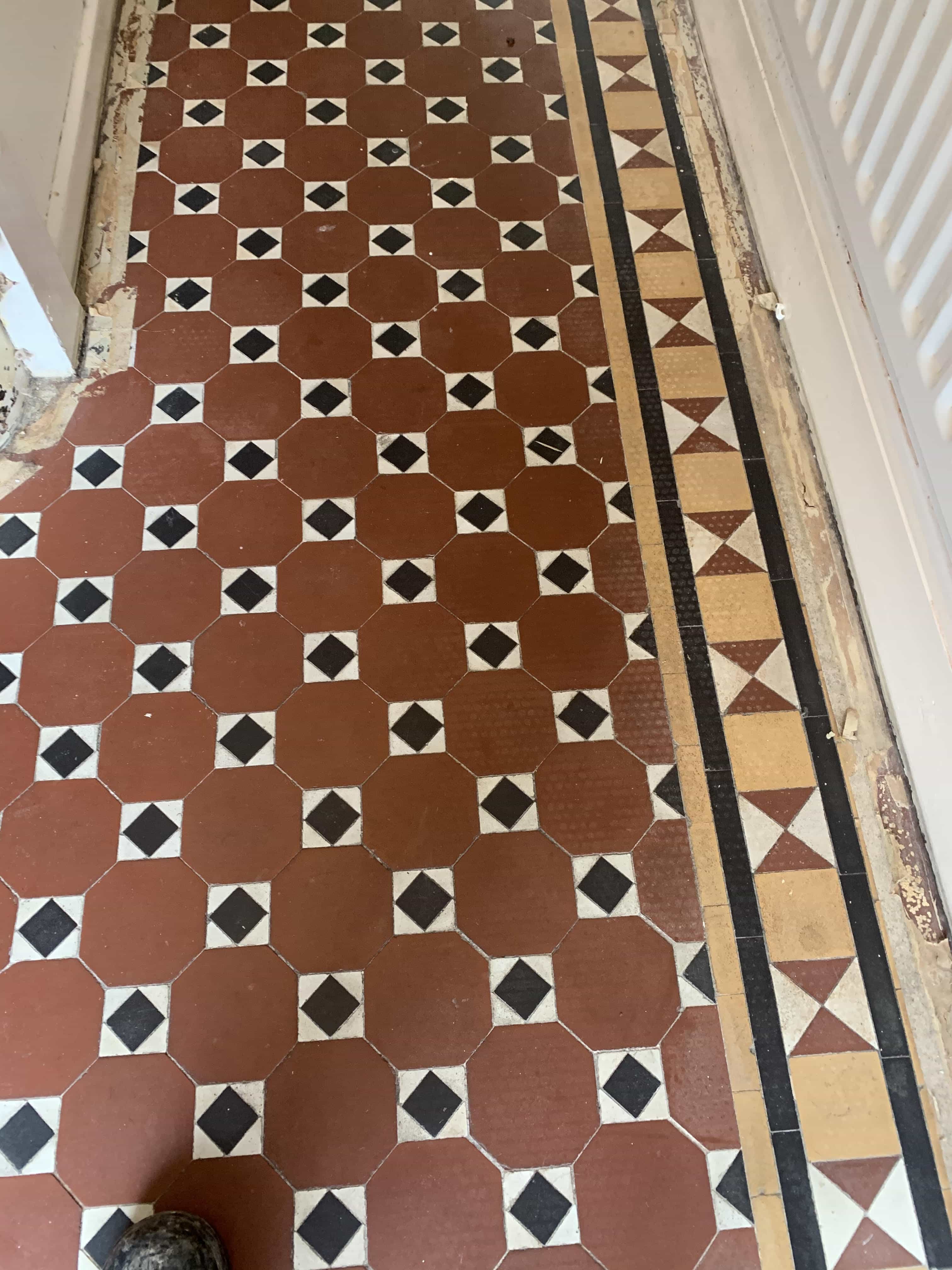 |
 |
I popped in to survey the floor and unusually for a floor of its age could find no damage or loose tiles, there was some adhesive tape to deal with along the edges but generally the floor just needed a good clean and seal. I gave them my quote which they readily accepted, and we arranged a date.

Cleaning an Edwardian Tiled Hallway Floor
The first part of the clean which involved removing the old adhesive tape and paint on the edges and corners was carefully done by hand with a scraper. The whole floor was then given a deep clean using a 45kg floor buffer fitted with a scrubbing brush to work in different products. First, I applied Tile Doctor Remove and Go to remove the old wax polish. I find it works best if you leave products to soak in for ten minutes before scrubbing it into the tiles, this gives it time to activate and breakdown the coatings. The slurry is then rinsed off with a little water and extracted with a wet vacuum.I repeated the process, but this time using Tile Doctors Acid Gel using as little water as possible. The Tile Doctor Acid Gel will remove old grout and other mineral deposits from the tiles and it also counters any alkaline salts which can be a problem in floors of this age. This is important as the lack of a damp proof membrane will allow salts to rise through the floor as moisture evaporates on the surface resulting in white deposits, a process known as efflorescence. Again, this was rinsed off with a little water and extracted with the wet vacuum.
This work was carried out over the winter and I was careful not to over wet the tiles as they can take a long time to dry out naturally at this time of year. The moisture levels in the tiles are always a concern as my next task would be to apply a sealer and the tiles would need to be dry for the best result.
Sealing an Edwardian Tiled Hallway Floor
Conscious of the damp issue I arranged to return to seal the floor seven days later, checking the moisture levels of the tiles with a damp meter in numerous places before starting. Fortunately, seven days had been plenty of time and the floor was dry.The floor was then sealed with five coats of Tile Doctor Seal and Go Extra which allows for moisture to rise through the tile, again an important feature for a floor with no damp proof membrane. To use a sealer that was not breathable would lead to a build-up of damp under the floor where it can cause damage to the tiles and potentially work its way into the walls causing rising damp.
 |
 |
The client was very happy with the newly revived floor, it was nice to have an additional period feature revealed. Going forward I suggested the use of Tile Doctor Neutral Tile Cleaner which is ideal for the regular cleaning of sealing floors and will ensure the tiles remain in this lovely condition for a long time.
Source: Edwardian Floor Cleaning and Restoration Service in Warwickshire